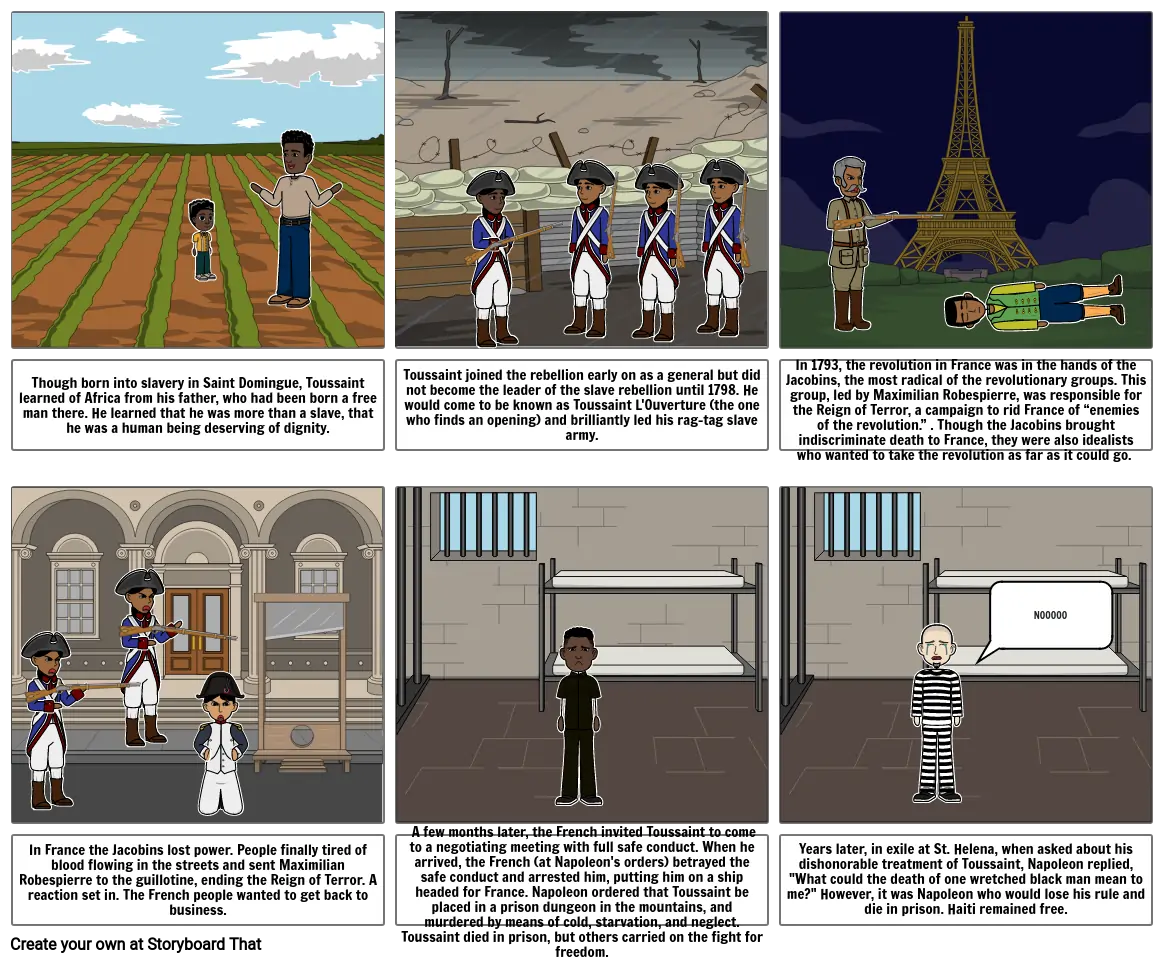Unknown Story

Storyboard Text
- Though born into slavery in Saint Domingue, Toussaint learned of Africa from his father, who had been born a free man there. He learned that he was more than a slave, that he was a human being deserving of dignity.
- Toussaint joined the rebellion early on as a general but did not become the leader of the slave rebellion until 1798. He would come to be known as Toussaint L'Ouverture (the one who finds an opening) and brilliantly led his rag-tag slave army.
- In 1793, the revolution in France was in the hands of the Jacobins, the most radical of the revolutionary groups. This group, led by Maximilian Robespierre, was responsible for the Reign of Terror, a campaign to rid France of “enemies of the revolution.” . Though the Jacobins brought indiscriminate death to France, they were also idealists who wanted to take the revolution as far as it could go.
- NOOOOO
- In France the Jacobins lost power. People finally tired of blood flowing in the streets and sent Maximilian Robespierre to the guillotine, ending the Reign of Terror. A reaction set in. The French people wanted to get back to business.
- By 1803 Napoleon was ready to get Haiti off his back: he and Toussaint agreed to terms of peace. Napol A few months later, the French invited Toussaint to come to a negotiating meeting with full safe conduct. When he arrived, the French (at Napoleon's orders) betrayed the safe conduct and arrested him, putting him on a ship headed for France. Napoleon ordered that Toussaint be placed in a prison dungeon in the mountains, and murdered by means of cold, starvation, and neglect. Toussaint died in prison, but others carried on the fight for freedom.
- Years later, in exile at St. Helena, when asked about his dishonorable treatment of Toussaint, Napoleon replied, "What could the death of one wretched black man mean to me?" However, it was Napoleon who would lose his rule and die in prison. Haiti remained free.
Over 30 Million Storyboards Created

